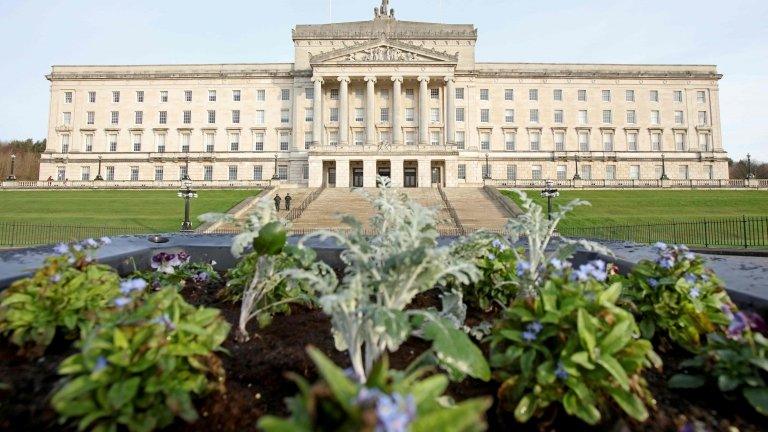Stormont talks: Main NI parties agree power-sharing deal
- Published
Sinn Féin President Mary Lou McDonald (left) addressed reporters at Stormont
Sinn Féin have said they will re-enter devolved government in Northern Ireland after three years of deadlock.
The Democratic Unionist Party (DUP) had earlier also given its support to a draft deal to restore Stormont's political institutions.
The British and Irish governments published the draft proposals, external on Thursday, after nine months of talks.
Stormont's power-sharing coalition, led by the DUP and Sinn Féin, collapsed in January 2017 over a green energy row.
Prime Minister Boris Johnson welcomed the agreement, tweeting it was a "great step forwards for the people of Northern Ireland".
There will be a meeting of the Northern Ireland Assembly on Saturday afternoon when the parties are expected to elect a speaker of the assembly and appoint executive ministers.
The proceedings will be streamed live on the BBC News NI website from 13:00 GMT, there will also be coverage on BBC Two NI from 15:30 GMT.

Allow X content?
This article contains content provided by X. We ask for your permission before anything is loaded, as they may be using cookies and other technologies. You may want to read X’s cookie policy, external and privacy policy, external before accepting. To view this content choose ‘accept and continue’.

What is power-sharing in Northern Ireland?
Until three years ago, Northern Ireland was jointly governed by its largest unionist party, the DUP, and its largest nationalist party, Sinn Féin.
They shared power in political institutions set up under the 1998 Good Friday Agreement, a deal which brought peace to Northern Ireland after 30 years of violence known as the Troubles.
Under the principles of power-sharing, Stormont's government cannot function unless it is comprised of a coalition of both unionists and nationalists.
What caused Stormont to collapse?
Relations between the DUP and Sinn Féin had deteriorated in recent years as the two parties were diametrically opposed not only on Northern Ireland's position within the UK, but also issues such as the Irish language; same-sex marriage; abortion and how to deal with the legacy of the Troubles.
But unexpectedly it was a row over a green energy scheme which pushed their relationship past breaking point.
The Renewable Heat Incentive (RHI) scheme was set up by DUP leader Arlene Foster when she was enterprise minister, but it ran over budget and at one point threatened to cost taxpayers £490m.
Sinn Féin demanded that Mrs Foster step aside as first minister during an inquiry into the RHI scheme and when she refused, they pulled out of government on 9 January 2017.
How was a deal struck?
Two key sticking points in the Stormont talks were around an Irish language act and the petition of concern.
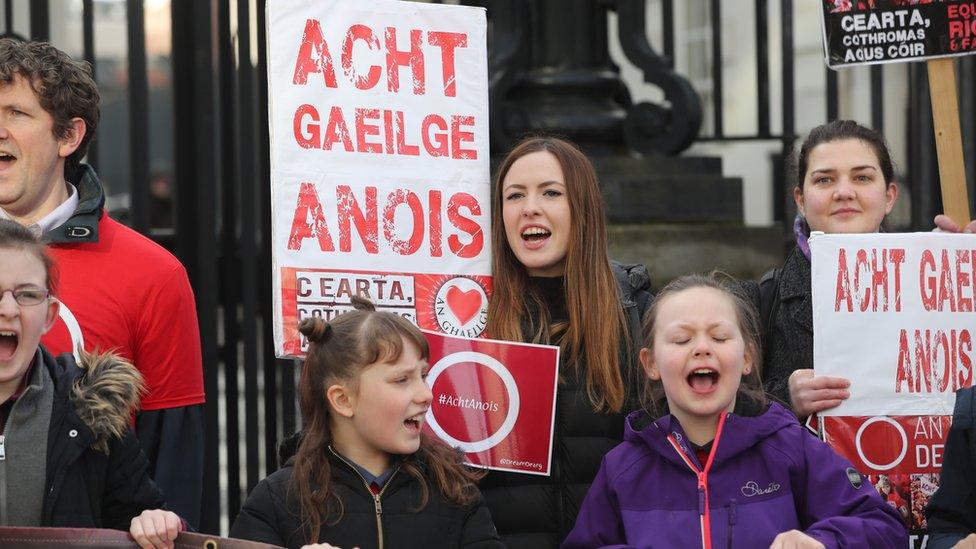
The call for an Irish language act has been a key sticking point
The draft deal says there is to be "meaningful reform" of the petition, which would be "reduced and returned to its intended purpose" and would "only be used in the most exceptional circumstances and as a last resort, having used every other mechanism".
The proposed deal would see legislation created for the appointment of both an Irish language commissioner and an Ulster-Scots commissioner.
Earlier, Irish language group Conradh na Gaeilge welcomed the draft deal as "historic advancement but added it "falls very much short" of promises for an Irish Language act.
Other key points in the deal include the Northern Ireland Executive settling an ongoing pay dispute with nurses and increasing policing numbers.
What did the parties say about the deal?
Sinn Féin President Mary Lou McDonald told a Stormont press conference on Friday that her party will nominate ministers to an executive.
She said Sinn Féin was up for a return to "genuine power sharing".
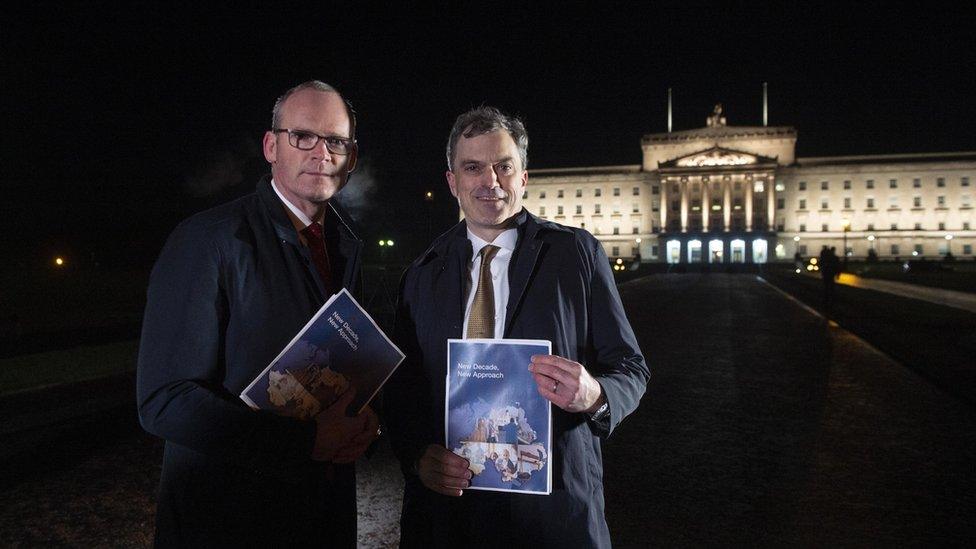
Tánaiste (Irish Deputy PM) Simon Coveney and NI Secretary Julian Smith published the deal on Thursday night
DUP leader Arlene Foster described the proposals as a "fair and balanced deal".
"I know there will be challenges in the deal, not least we need to make sure we have the finances to be able to deal with all of the issues in Northern Ireland that are present at the moment, particularly in and around the health sector."
'It's a fair and balanced deal'
The Social Democratic and Labour Party (SDLP) leader Colum Eastwood confirmed on Friday that his party will return to Stormont when the assembly is recalled.
The Alliance Party also confirmed on Friday night it would support the deal. The Ulster Unionist Party are meeting on Saturday morning to decide.
How has the DUP and Sinn Féin's decision been received?
Tánaiste (Irish Deputy Prime Minister) Simon Coveney, who helped broker the deal, said: "History is being made today."
He added: "We now have confirmation from the two largest parties in Northern Ireland that they both are committed to re-entering an executive and establishing a functioning Stormont assembly again.
The leaders of Ireland's main churches welcomed the agreement, saying it offered "new hope" and a "new start" for Northern Ireland's political institutions.
In a joint statement, the leaders of the Church of Ireland, Methodist Church in Ireland, Roman Catholic Church, Presbyterian Church in Ireland and the Irish Council of Churches said the government's proposals "offer an opportunity to build a peaceful and just society".
However, the Orange Order earlier said it has "very serious concerns" about the deal and could not support the proposal to appoint an Irish language commissioner.
- Published10 January 2020
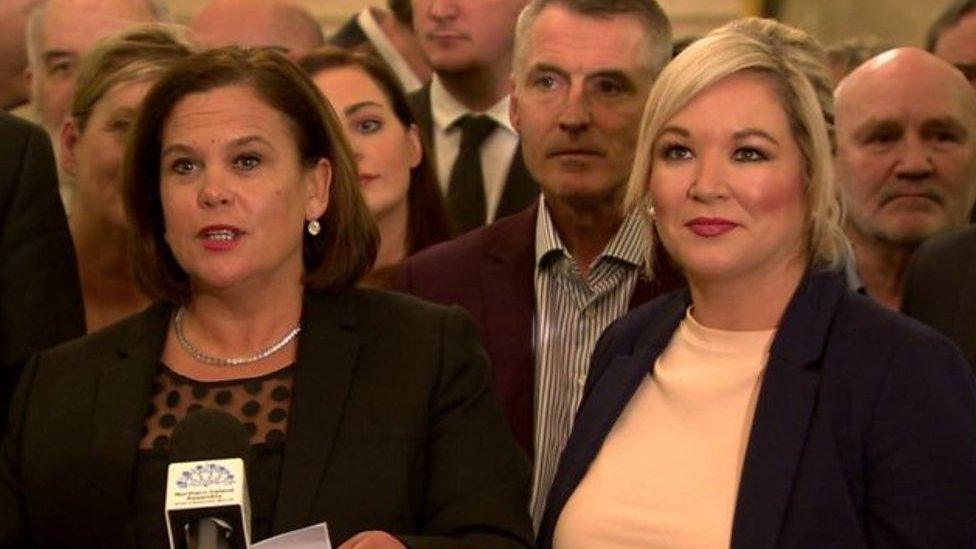
- Published10 January 2020
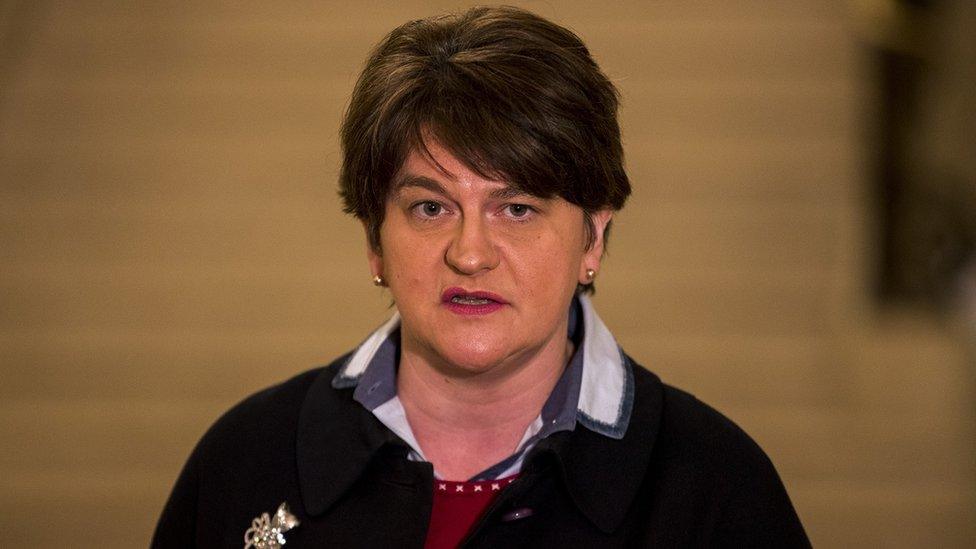
- Published10 January 2020
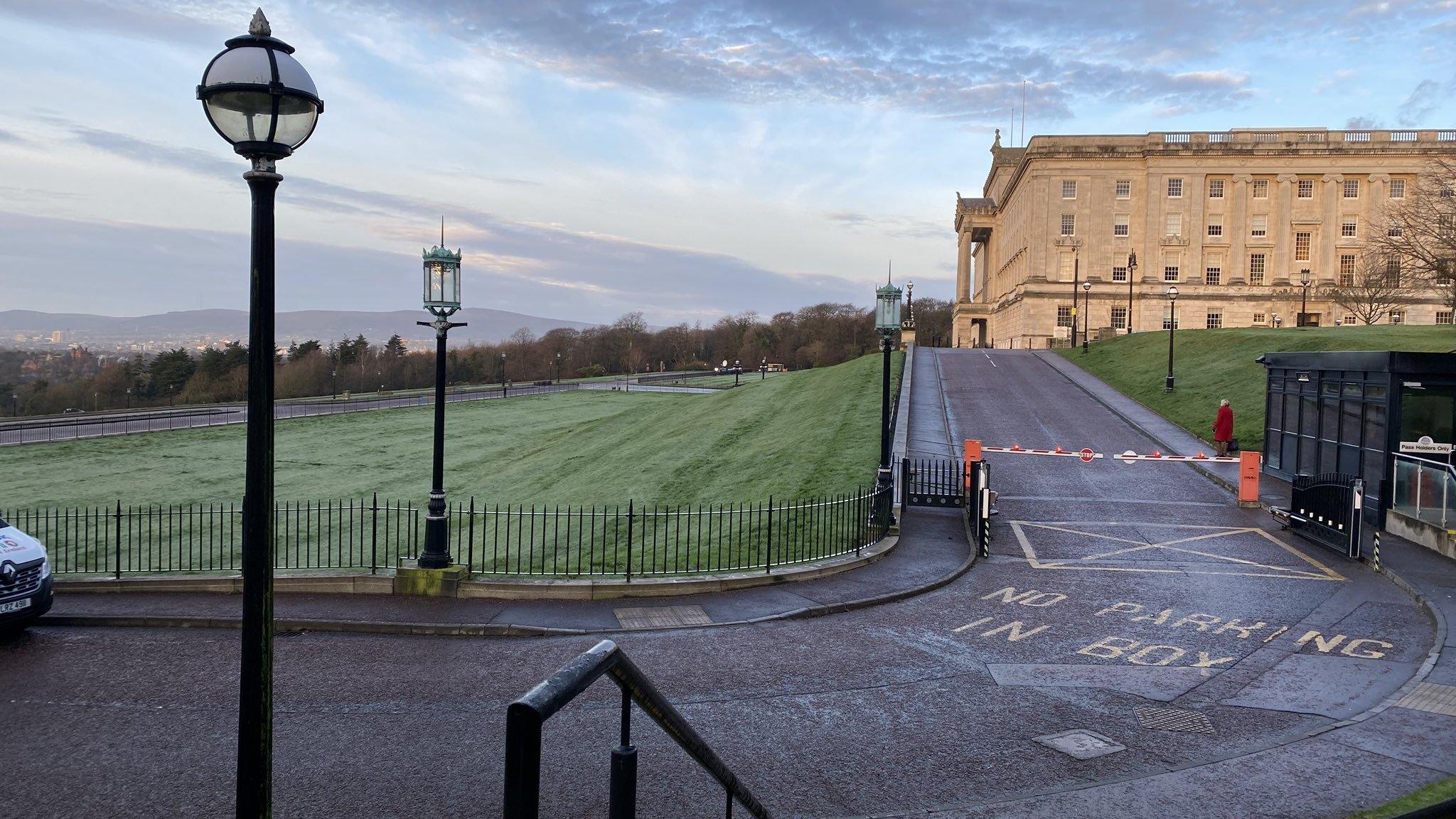
- Published10 January 2020
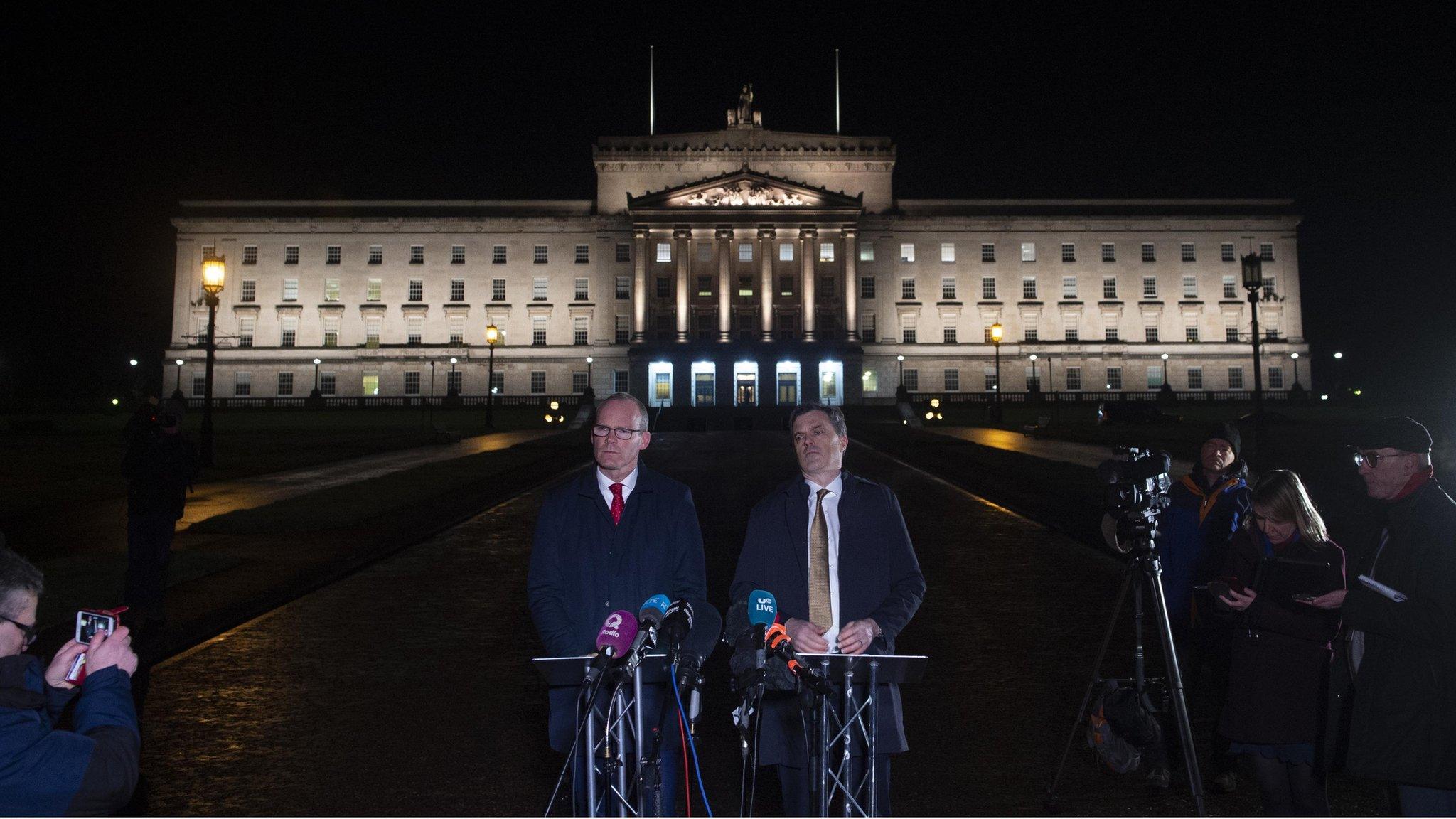
- Published10 January 2020
